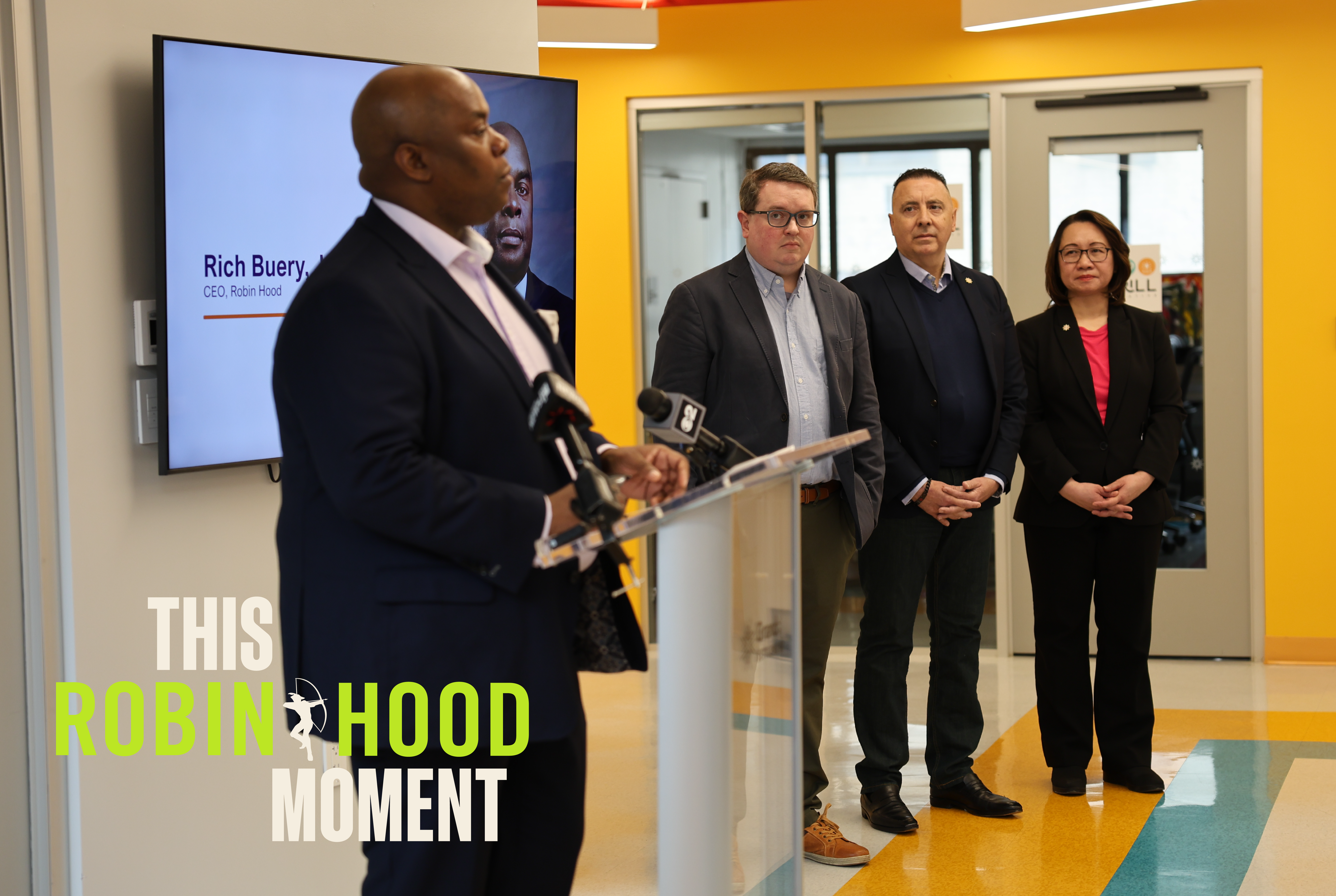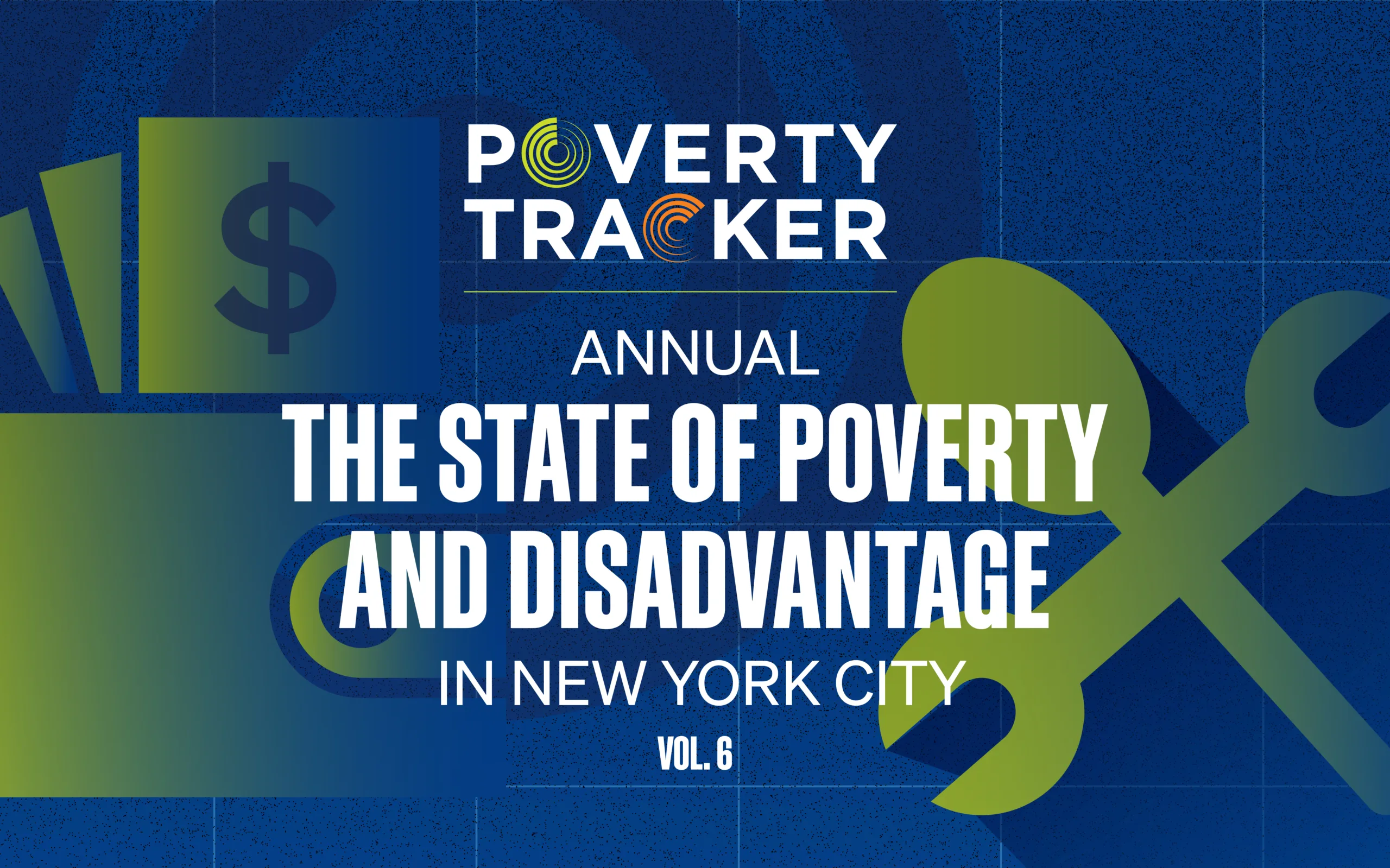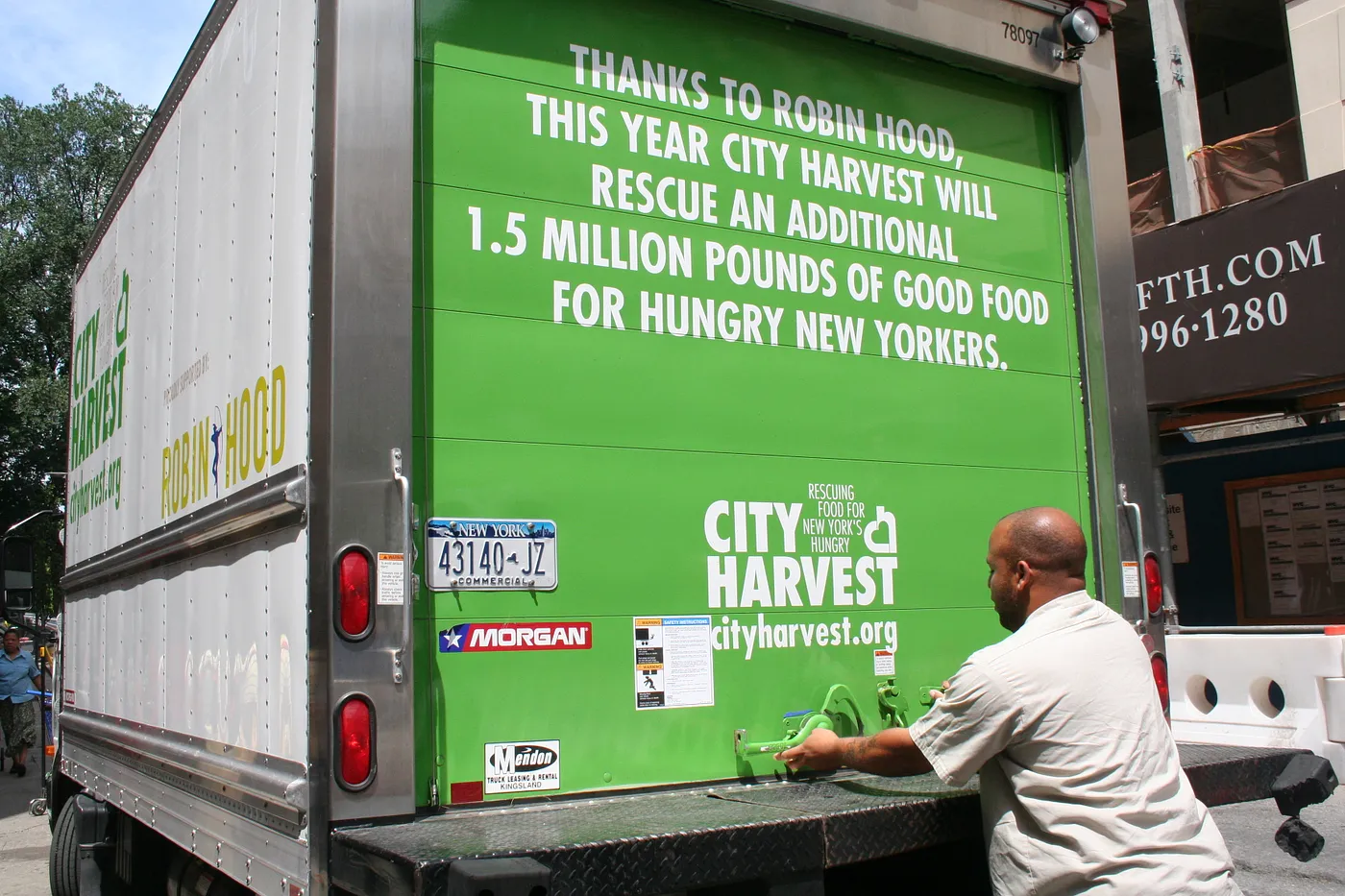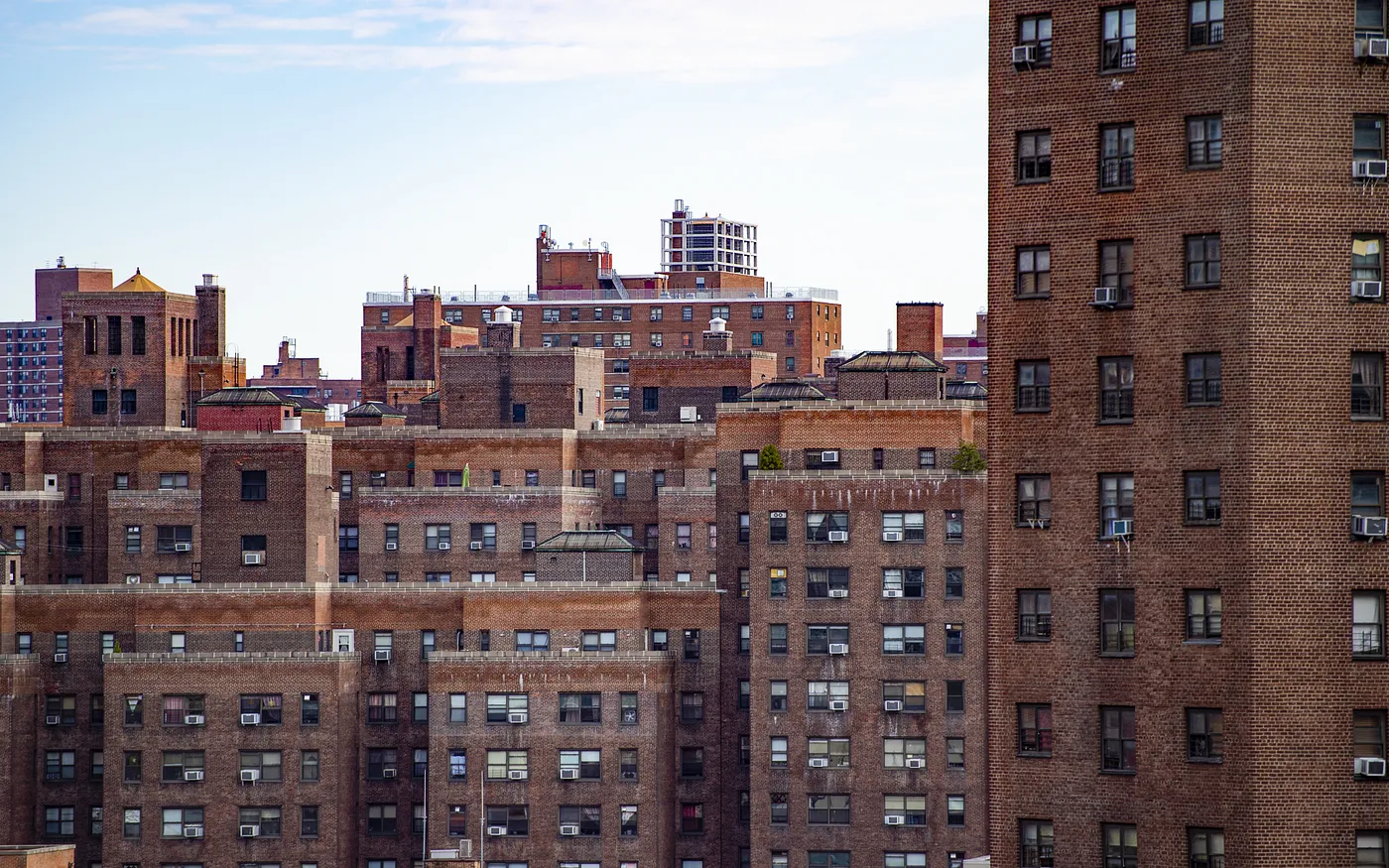Nov 18, 2021 Press Release
Latest Poverty Tracker Report Finds New Yorkers in Need of Food Assistance Doubled in 2020
Robin Hood Partners with POTS To Address Food Insecurity in the Bronx where nearly one out of every two residents experience food hardship. Benefits that prevented worsening crisis set to expire; require permanent solution.
NEW YORK, NY /PRNewswire/ — Today, Rich Buery, CEO of Robin Hood, and Christina Hanson, Executive Director of Part of the Solution (POTS), led a tour of POTS’ food pantry facility in the Bronx where Robin Hood released its latest Poverty Tracker report, “Spotlight On State of Food Hardship in New York City“. The new report, developed in collaboration with Columbia University’s Center on Poverty and Social Policy and the Columbia Population Research Center, found that 39% of New Yorkers experienced food hardship in 2020, including 46% of Bronx residents.
“Too many New Yorkers still struggle to put food on the table, including nearly one out of every two residents of the Bronx,” said Richard R. Buery, Jr., CEO of Robin Hood. “That is why Robin Hood is proud to partner with organizations like POTS doing the necessary work to help rebuild a (new) New York so we can get families back on their feet, kids back on track, and New Yorkers back to work. The data demonstrates how essential food distribution services are to the people of this city, and we must continue to invest in the organizational and governmental infrastructure to support struggling families.”
The number of New Yorkers who are hungry or worry about running out of food paints a dire picture of food insecurity in New York. Robin Hood’s report found:
- Use of food pantries more than doubled between 2019 and 2020 for New Yorkers in the sample facing food hardship, rising from 25% to 51%.
- 47% of households with children said that they struggled to keep enough food on the table during 2020.
- Among immigrant New Yorkers, the use of food pantries rose from 11% to 32% between 2019 and 2020, and 43% of foreign-born New Yorkers reported that they sometimes or often worried about running out of food or ran out of food last year.
- 57% of Latinx New Yorkers and roughly 45% of Black New Yorkers said they experienced food hardship in 2020.
- Nearly 1 in 2 (46%) Bronx residents report facing food hardship.
- Pantry use became more frequent, with 58% of respondents reporting visiting pantries weekly or several times a month in 2020 compared to 34% in 2019.
As New Yorkers struggled to keep food on the table, Robin Hood worked with New York emergency food providers who, like POTS, responded to the crisis by increasing the amount of food delivered to keep New Yorkers fed.
“As we strive to address the complex issues associated with poverty and food insecurity in The Bronx, we saw a significant growth in need since the onset of the pandemic, particularly for the immigrant population. We were only able to meet this increase in demand for comprehensive services due to the matching additional support from our partners and donors,” said Christina Hanson, executive director of Part of the Solution (POTS).
Last week, Robin Hood renewed two grants to POTS totalling more than $700,000, including a 24-month grant to help POTS distribute more than two million pounds of food annually, representing a 37% increase in food distribution between 2020 and 2021. $200,000 of the grant funding is allocated to connecting low-income families with wraparound benefits that alleviate a variety of needs associated with poverty and food hardship, including SNAP, TANF, unemployment insurance, health coverage, legal services, and other direct support that defray the costs of housing and utility bills.
Together, the policy reforms made at all levels of government and the programmatic changes made throughout the city’s emergency food distribution network appear to have guarded against a more significant rise in the rate of food hardship in New York City in 2020. According to the Poverty Tracker, the number of New Yorkers facing food hardship stayed roughly the same from 2019 to 2020, increasing only from 37% to 39%, while the rate of severe food hardship stayed steady at 9%.
Chantal Bannerman, the Poverty Tracker Study Coordinator at Columbia University, added, “Given the severity of the economic shock caused by COVID-19, we were prepared to witness a sharp increase in food hardship in New York City — which was already too common among New Yorkers. But this didn’t happen. The robust response to the crisis from both policymakers and food assistance providers seems to have blunted what would have been a stark rise in food hardship, underscoring the importance of increased investment in these policies and programs in the continued fight against food hardship in the city.”
While the prevention of a sharp increase in hardship is laudable, the rate of food insecurity in New York remains a pressing issue requiring permanent solutions. Many of the benefits that prevented the food hardship crisis from worsening are temporary, such as SNAP benefits that are set to expire when the public health emergency is lifted. Further, more investments in the city’s emergency food distribution network are needed in concert with a concentrated effort to enact policies and appropriate public funding to support wraparound services that address the issues that underlie food insecurity.
In 2021, Robin Hood invested nearly $9 million in aid to soup kitchens, food pantries and other emergency food services, including 10 grants funded through Robin Hood’s core grant program each averaging about $527,000 and more than 90 smaller grants administered through the Robin Hood Relief Fund.
Since 2012, the Poverty Tracker has surveyed a representative sample of New Yorkers every three months, providing critical information on the dynamics of poverty and other forms of disadvantage in the city while tracking data on employment, assets and debts, and health. The Poverty Tracker has monitored the impacts that COVID-19 and the related economic downturn has had on life in New York City since the onset of the pandemic.
Read the full report here.
About Robin Hood:
Robin Hood has been fighting poverty in New York City since 1988. Because Robin Hood’s board covers all overhead, 100% of every donation goes directly to the poverty fight. Last year, Robin Hood awarded $172 million in grants, filling a critical void during the COVID-19 pandemic by providing cash assistance, meals, housing, healthcare, education, and other urgent needs to one million New Yorkers impacted by COVID-19, as well as funding an array of programs and initiatives developed to elevate families out of poverty in New York City. Follow the organization on Twitter @RobinHoodNYC and learn more at www.robinhood.org.
About the Center on Poverty and Social Policy (CPSP):
The Center on Poverty and Social Policy at the Columbia School of Social Work produces cutting-edge research to advance our understanding of poverty and the role of social policy in reducing poverty and promoting opportunity, economic security, and individual and family-wellbeing. The Center’s work focuses on poverty and social policy issues in New York City and the United States.
About Columbia Population Research Center (CPRC):
The Columbia Population Research Center supports population health researchers across Columbia University, galvanizing new interdisciplinary and cross-campus collaborations, promoting the professional development of junior scientists, and enabling members to do work that is more innovative and impactful. Our members’ interests encompass four primary research areas: Children, Youth, and Families; Reproductive Health and HIV/AIDS; Immigration/Migration; and Urbanism, with cross-cutting attention to inequalities and policies to mitigate those inequalities.
About POTS:
Since 1982, Part of the Solution (POTS) has grown to become a leading provider of emergency food, social services and legal representation in the Bronx. POTS’ comprehensive and personalized approach assists individuals as they move from crisis to stability and, ultimately, self-sufficiency. Currently, its services include a Community Dining Room, open six days a week; a Food Pantry; Clothing Room, Shower, and Mail Facilities; Barbershop; Case Management to help people address barriers to stability; a Legal Clinic specializing in eviction prevention and improper denial of benefits; and comprehensive case management to address the complexities associated to poverty and food insecurity. POTS also holds a variety of seasonal distributions for items such as back-to-school supplies, Thanksgiving turkeys, and holiday gifts. Our facilities are also host to Care for the Homeless’ Medical and Dental Clinic.



